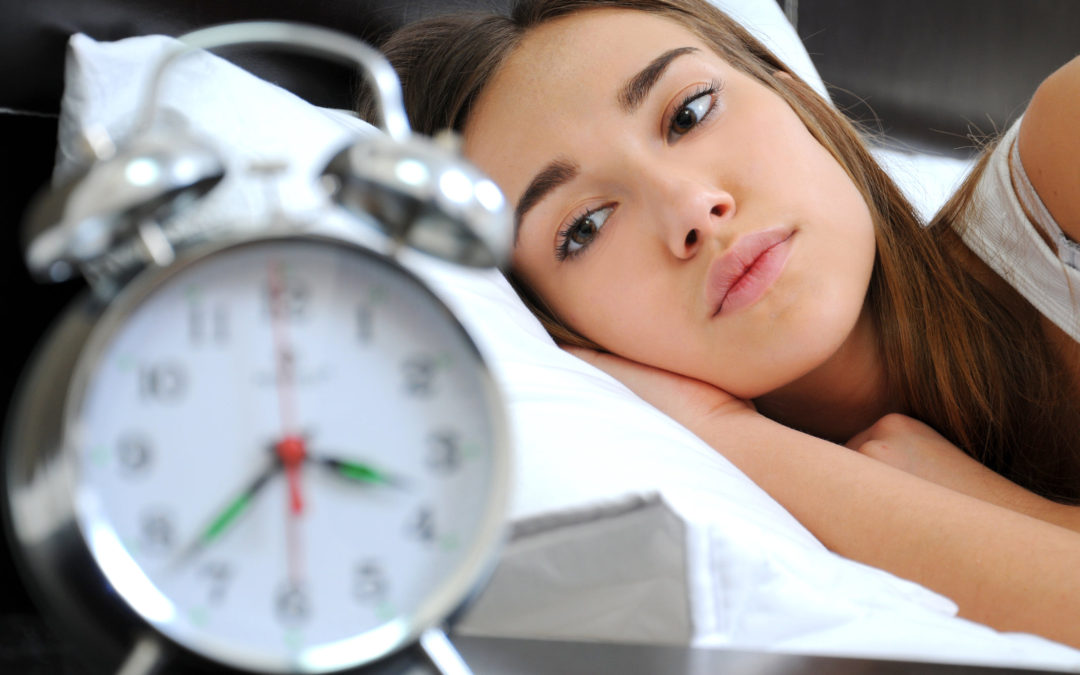One of the most common health problems in our society is insomnia, which includes the inability to get sufficient restful sleep, difficulty getting to sleep and difficulty staying asleep. Recent estimates reveal that at least 60 percent of Americans suffer from insomnia. A more recent factor for many people that has contributed to poor sleep is the increased use of electronics before bedtime, including computers, laptops, tablets and smartphones. There are at least 70 sleep disorders that can lead to insomnia and many underlying causes that can contribute to this problem. Not only does insomnia lead to a lack of energy and focus, increasing the risk of accidents and injuries, but also takes a toll on all systems of the body including your immune system, cardiovascular system, nervous system, hormone system, and metabolism.
How Does Loss of Sleep and Insomnia Affect Your Body?
Not getting a good night’s sleep not only zaps your energy levels, making mental focus more difficult and emotional stability like walking on a tightrope, but the long-term consequences of not getting adequate, quality sleep can contribute to or promote a number of serious health problems including Type II diabetes, obesity, Alzheimer’s, cancer, and mental and behavioral disorders.
Recently, researchers at the University of Rochester Medical Center discovered another aspect of insomnia in regards to brain health. Their discovery revealed how your brain removes waste and toxins through a system unique to the brain called the glymphatic system. This system is similar to your lymphatic system which removes cellular wastes and toxins from your body, but is unique in the fact it is separate from your lymphatic system and is managed by the glial cells in your brain. The glymphatic system is most active when you are sleeping. In fact, it is 10 times more active while you are sleeping versus when you are awake. During deep sleep, your brain cells shrink about 60 percent to allow this system to become more active and flush out waste products that have accumulated throughout your waking hours. One of the waste products that is removed during this process is amyloid-beta, the protein that builds plaques in the brain associated with Alzheimer’s disease. In fact, the glymphatic system removes significantly more amyloid-beta protein while you are sleeping.
Strategies to Improve Your Sleep
It may seem easiest to reach for a sleeping pill when you just can’t get enough shut-eye, but you need to be aware of the risk involved with this, as well as the fact that the underlying cause of your insomnia is not being addressed. One study showed that sleeping pills allow you to fall asleep ten minutes sooner than when not using a sleeping pill and only provides 15-20 more minutes of total sleep. The cost of that extra sleep induced with sleeping pills is a four-fold increase of death and increased risk of cancer. Here are some natural strategies to implement if getting a good night’s sleep seems like a dream:
-
Keep Your Bedroom Dark-Even small amounts of light can affect your brain’s production of melatonin, making it difficult to stay or fall asleep.
-
Avoid Television and Computer Before Bedtime-Television and computer monitors emit blue light, which tricks the brain to think it is daytime. This in turn inhibits melatonin production in the brain, making it difficult to fall asleep. It is best to avoid these electronics one hour before bedtime.
-
Keep a Schedule-Try to stay consistent with when you go to bed and wake up. This trains the body to make the various hormones and neurotransmitters at the appropriate times helping you get a good night’s sleep.
-
Chiropractic-Certain chiropractic techniques assess the balance of the nervous system, more specifically the sympathetic and parasympathetic systems. These two systems will either put your body in “fight or flight” or “rest and digest” respectively. Various types of stress can keep your body in “fight or flight” making it impossible to get a good night’s sleep. Certain chiropractic adjustments can help restore balance to these two systems, allowing you to rest and sleep better.
-
Acupuncture-A number of studies have proven the benefits of using acupuncture for insomnia. These studies have shown an increased production of melatonin at night, leading to better quality of sleep and being able to fall asleep faster.
-
Cortisol testing-This hormone is typically highest in the morning and lowest at bedtime. If this cycle is out of normal rhythm, falling asleep and staying asleep may seem like an impossible task. Simple saliva tests can be used to track your cortisol production over the course of a day.
-
Exercise-Getting in 30 minutes of exercise each day has been shown to help with sleep. It is best to exercise in the morning or afternoon. Exercise in the evening may make it difficult to fall asleep.


Recent Comments